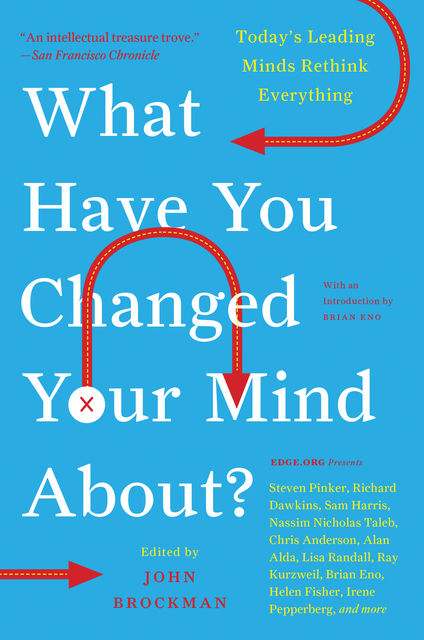
en
Čitajte pomoću naših aplikacija:
iOS
·Android
What Have You Changed Your Mind About?
Ova knjiga je trenutno nedostupna
366 štampanih stranica
- Godina izdavanja
- 2009
Citati
- Soliloquios Literariosje citiralaпре 5 годинаBut we tend to not know what we know. We can speak properly without knowing how we do it. We don’t know how we comprehend. We just do.
- Soliloquios Literariosje citiralaпре 5 годинаFinally, I’ve come to think that identifying scientificality with falsifiability lets certain nonscientific theories off the hook, by saying that we should try to find good reasons to believe whether a theory is true or false only when that theory is called “science.” It allows believers to protect their pet theories by saying that they can’t be, and shouldn’t be, subject to falsification, just because they’re clearly not scientific theories. Take the theory that there’s an omnipotent, omniscient, beneficent God. It may not be a scientific hypothesis, but it seems to me to be eminently falsifiable; in fact, it seems to have been amply falsified. But because falsifiability is seen as demarcating the scientific, and since theism is so clearly not scientific, believers in religious ideologies get a free pass. The same is true for many political ideologies. The parity between scientific and nonscientific ideas is concealed by thinking that there’s a simple test that distinguishes science from nonscience, and that that test is falsifiability.
- Soliloquios Literariosje citiralaпре 5 годинаThese are described as “subjective”—that is, experienced by a living organism—because they cannot be isolated from the subject experiencing them and measured quantitatively. What is often suggested as an explanation of this is evolutionary complexity: When an organism has a nervous system of sufficient complexity, subjective experience and feelings can arise. This implies that something totally new and qualitatively different can emerge from the interaction of “dead,” unfeeling components such as cell membranes, molecules, and electrical currents.
But this implies getting something from nothing, which violates what I have learned about emergent properties: There is always a precursor property for any phenomenon, and you cannot just introduce a new dimension into the phase space of your model to explain the result. Qualities are different from quantities and cannot be reduced to them.
So what is the precursor of the subjective experience that evolves in organisms? There must be some property of neurons or membranes or charged ions producing the electrical activity associated with the experience of feeling that emerges in the organism.
fb2epub
Prevucite i otpustite datoteke
(ne više od 5 odjednom)

